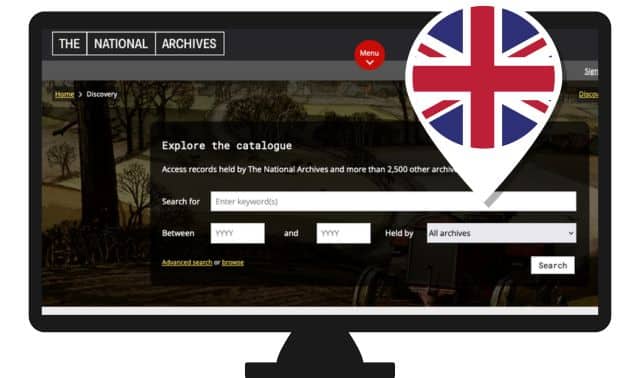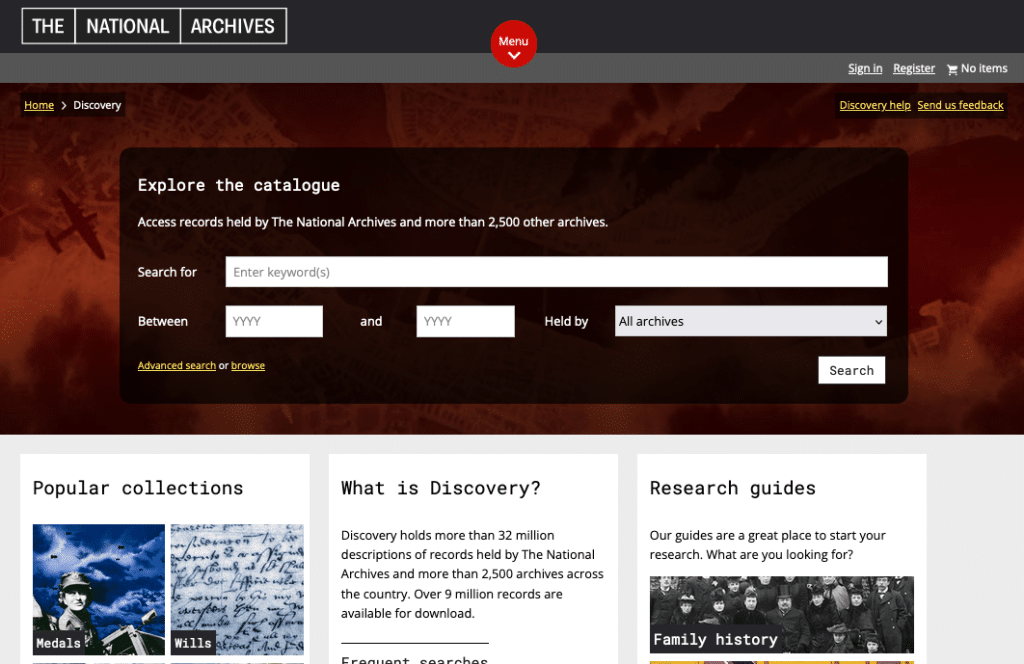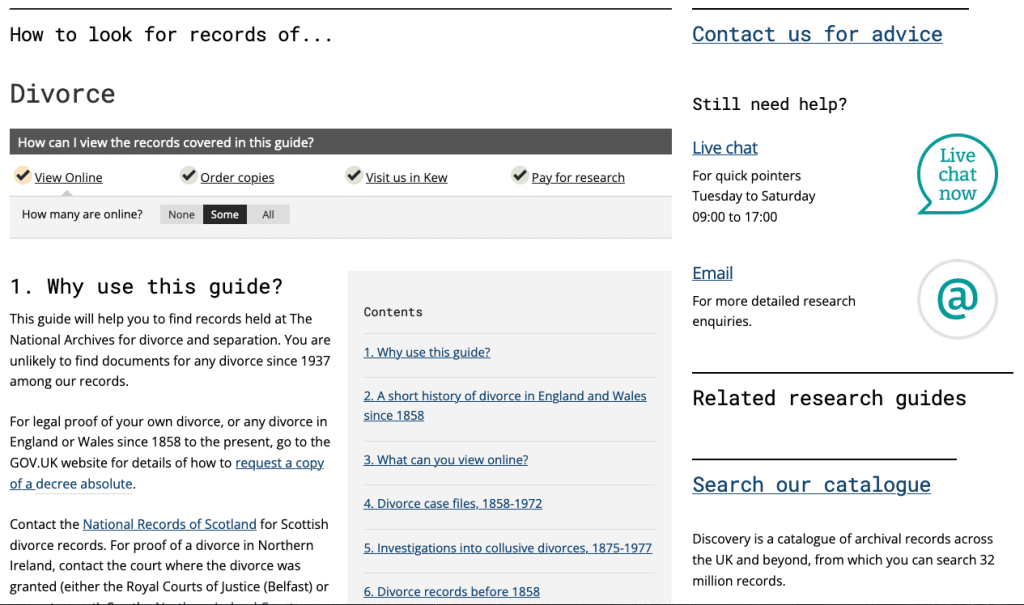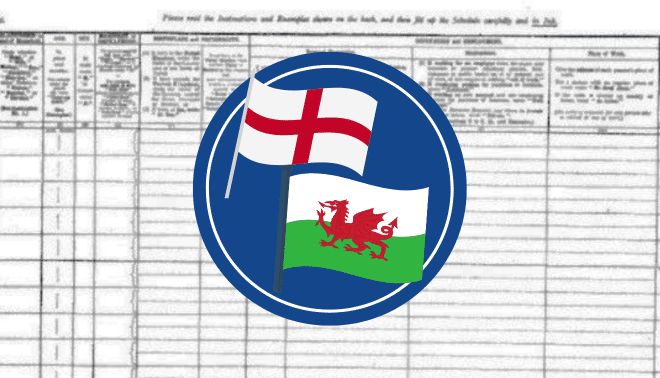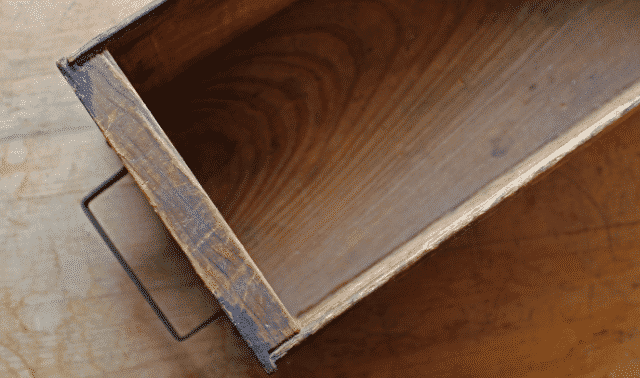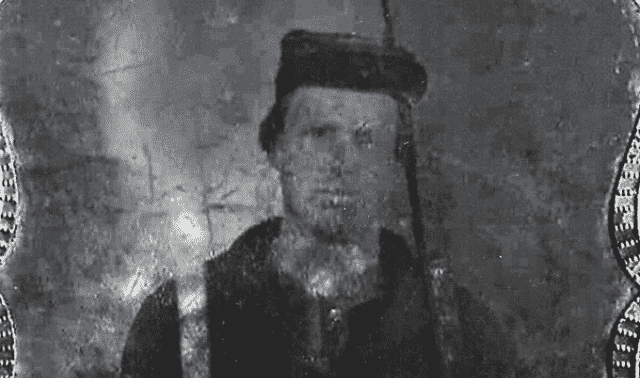Sign up for the Family Tree Newsletter! Plus, you’ll receive our 10 Essential Genealogy Research Forms PDF as a special thank you.
Get Your Free Genealogy Forms
"*" indicates required fields
The National Archives (TNA) in London is just a stone’s throw from the River Thames. TNA houses billions of records, some dating to 974 and including the will of “Bill” Shakespeare himself. And much is of potential value to the genealogist in the United States and beyond.
The number of digital records on TNA’s site is growing, but still doesn’t represent close to the archives’ full holdings. Still, staff continue scanning images, hopefully saving you the time and expense of traveling to London in person.
A majority of the site’s roughly 9 million online records relate to British subjects, but individuals from all over the world might find documentation of themselves or their ancestors among them. Researchers can access TNA’s digital archive “across the pond” on the screen of a desktop, laptop, tablet or smartphone. Some records were even “born digital”: text derived from modern, word-processed documents, spreadsheets, digital presentation slides, and emails.
With the right know-how, you can join tens of thousands of researchers worldwide who have downloaded records from the TNA website at no charge. Here’s how to navigate TNA’s website and tap into the hundreds of years’ worth of materials there.
First, register for a free account. You’ll need to provide an email address and password, but you can optionally add a name and your country. Click Register, then verify your email address and log in.
Exploring the Catalogue
The TNA website can be daunting to a newcomer, but don’t let that discourage you. Use the Discovery catalogue, a database of 32 million record descriptions, to discover a wealth of information.
From the Discovery page, you can search a keyword and enter a range of years. Specify which institution’s records you want to search (all archives, just the National Archives, or just other archives), then enter a keyword.
Search results include collections that have the keyword in their title or description. For example, a search for miners brings up papers from the South Yorkshire Miners’ Association and minutes from National Union of Mineworkers meetings in Staffordshire.
Click a result to view the collection and some basic information, including if and where you can search the collection online. You can filter results by year or (critically, for the overseas researcher) by ability to download.
The Discovery Page also links to the site’s 150-plus family history-related research guides. Each covers a subject of vital know-how for genealogists and other historians. The entry for the 1939 Register, for example, discusses:
- what details are included in the Register’s records, and who in the population was enumerated
- why the census was taken in the first place
- how the Register was compiled and arranged
- how to access records, including links to records on third-party sites (some of which may require subscriptions)
The value of these TNA guides cannot be overstated. Some include forms for you to search the relevant collection, or even sample records. They might also recommend other publications for further reading.
You can browse guides by keyword, or view them all. Click the “Show only guides with all records online” box to filter out collections that can only be accessed in person.
Don’t overlook the guides on more-general history as well. Many include information on the social, political, economic and cultural context that was relevant to your ancestors. For example, the guide on divorce includes a brief history of divorce law, as well as different kinds of divorce settlements. Some guides also cover foreign or colonial history.
The National Archives: A Practical Guide for Historians by Stella Colwell (The National Archives) is useful for beginners and experts alike. Published in 2006, the book is a little outdated, but still gives details of some of the records available online. For more up-to-date information, see TNA’s online guides.
Record Highlights
Among TNA’s records are censuses, WWII British Army casualty lists, wills of Royal Navy and Marines personnel, WWI British Army nurses’ service records, and Household Cavalry service records.
You might reach a dead-end when researching US citizens who served in the British military (and associated occupations). But even those painstaking efforts can produce invaluable results. For example, TNA contains personnel files for Henrietta Mary Dufferin, a US citizen who was a member of the British Women’s Army Auxiliary Corps (WAAC) during World War I. Details include her age, birthplace, height, weight, address and vaccination record.
Though much of the site pertains specifically to British history, the TNA website also covers several areas of US history given that the United States was once a British colony. Records of the American Revolution, for example, were produced by British government departments: the Colonial Office, the War Office, the Admiralty and the Treasury. Letters from these departments, for example, might cite individual people.
TNA’s guide to the American Revolution discusses these records and how to search them. Holdings include records created immediately before (1770–1773) and during (1775–1783) the Revolution, plus documents related to the British government’s relationship with the new United States (1783 and onward).
Try searching by names of battles or places, and learn some common department codes (for example, CO refers to Colonial Office records, and WO to War Office records).
Also note that not all Revolution records can be downloaded from TNA for free. Some are only available in person at the archives in Kew, and others will be available at the subscription site Ancestry.com.
One example is a collection of petitions for compensation put forward by colonists loyal to the Crown. Some Loyalists joined the British army or set up their own guerrilla units, with New York alone enlisting about 23,000 Loyalist troops. Many records haven’t yet been digitized and are available only in-person at Kew; Ancestry.com has copies of records that have been digitized. (The TNA guide also suggests A Bibliography of Loyalist Source Material in the United States, Canada and Great Britain by Gregory Palmer, Meckler Publishing.)
Finding and Downloading Records
Once you’re registered and have found a record you want to print off, the website allows you to order and download up to 10 items at a time. (The site caps downloads at 100 items over 30 days—a generous allowance when you consider the service is free.)
Let’s look at an example. TNA holds wills of certain US citizens, including that of John Lee of Boston (dated 30 November 1840). From that record’s page in the catalogue, click Add to Basket, then Go to Basket. Click Checkout, accept the terms and conditions on the next page, and click Submit Order. (Don’t be deterred by the “Checkout” button—if you’re signed in, the record is free to download.)
Once processed, your order page will contain a Download Now button. The resulting PDF has all three of the will’s pages, which you’re free to use for educational or non-commercial purposes. Note that download links expire after 30 days.
Learning from Podcasts and Videos
Complementing the array of documents available for access is a series of podcasts. TNA’s podcast “On the Record” shares true stories stemming from the archives’ collections. Subjects range from fashion and nightlife in the 1920s to Victorian cats to medieval hospitals.
TNA also publishes educational videos that cover historical topics. Examples include a talk by TNA’s Dr. Richard Dunley on American-British wartime partnerships, including US involvement in World War I.
TNA’s online services, like those of so many archives around the world, provide researchers with a window into a vast amount of material. Even if they represent only a small percentage of the archives’ total holdings, the digitized records otherwise could well lie beyond the reach of the family historian. That makes TNA an invaluable resource for examining the traces left by our forebears.
Archives Around the United Kingdom
TNA primarily serves England and Wales, as well as the UK government. For records from Scotland and Northern Ireland (the other constituent countries of the United Kingdom), visit their respective archival websites:
A version of this article appeared in the March/April 2023 issue of Family Tree Magazine.

